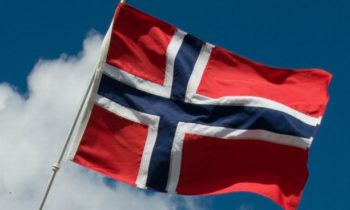 The Myanmar Peace Support Initiative (MPSI), a Norwegian government-backed project to mobilize international support for Burma’s peace process, will continue despite criticism and the fact that it was originally set up as a short-term initiative, according to a consultant for the project. “We are currently discussing with the Norwegian Ministry of Foreign Affairs how to go forward with MPSI,” said Ashley South, who acts as a senior advisor to the project. “For the time being, we have agreed to continue working until at least September.”Established in early 2012 in response to a request from President Thein Sein, the MPSI has come under fire for its lack of a coherent strategy and its failure to address the concerns of community-based groups and other actors affected by the peace process.
The Myanmar Peace Support Initiative (MPSI), a Norwegian government-backed project to mobilize international support for Burma’s peace process, will continue despite criticism and the fact that it was originally set up as a short-term initiative, according to a consultant for the project. “We are currently discussing with the Norwegian Ministry of Foreign Affairs how to go forward with MPSI,” said Ashley South, who acts as a senior advisor to the project. “For the time being, we have agreed to continue working until at least September.”Established in early 2012 in response to a request from President Thein Sein, the MPSI has come under fire for its lack of a coherent strategy and its failure to address the concerns of community-based groups and other actors affected by the peace process.
In January of this year, the relevance of the MPSI was reviewed two years after Norway spent US$2 million in Burma’s ethnic conflict areas.
The money was spent on dozens of pilot projects in Shan, Karen, Karenni, Mon, Chin states as well as Pegu and Tenasserim divisions. The projects focused on humanitarian aid, education support, development and the possible return of internally displaced people (IDPs) and refugees. Some 60,000 IDPs were issued national identity card with the support of MPSI, which also held consultations and workshops in ethnic areas.
In March, a report assessing the MPSI noted shortcomings in the way the project was being implemented, but suggested that these issues were being addressed.
“As the peace process slowly moved forward, MPSI recognized the need to become involved in longer-term support, including state-level consultations, building the capacity of ethnic actors to engage with the peace process, and finding ways to make voices from the ground heard by those in power—both the Burmese government or donors,” said the report, titled “Testing Ceasefires, Building Trust.”
However, some relief groups and others dealing with conflict-related issues expressed dissatisfaction with the report’s sanguine assessment of the effectiveness of the MPSI.
“These people [the MPSI] have done nothing for our people,” said Sumlut Seng, an aid worker in Kachin State, where nearly three years of conflict between government forces and ethnic rebels have displaced tens of thousands of civilians.
“[They] just take all this international funds without doing anything to stop the war in our homeland. They should give us the money for IDPs in Kachin State instead,” he added.
South acknowledged that the MPSI was not intended to be a long-term project, but defended the decision to keep it going.
“As the peace process has moved forward, we have felt it useful to keep going and have now been working for nearly two and a half years,” he said via email.
(irrawaddy)

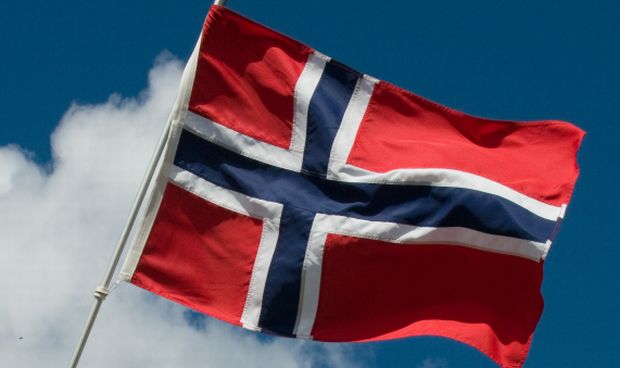

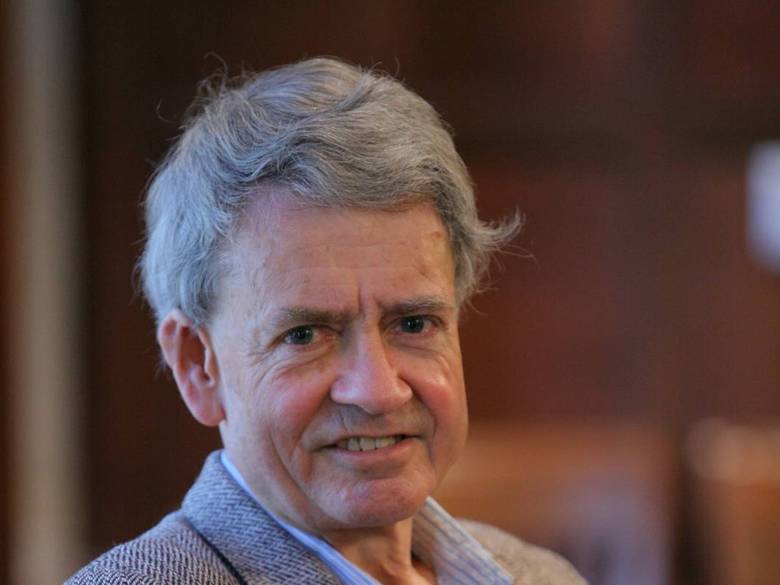
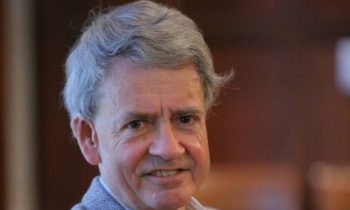 The British historian Michael Cook is awarded ‘the Nobel Prize of the arts, humanities, social sciences, law and theology’. Terje Lohndal is the youngest recipient ever to be awarded the Nils Klim Prize. The Chair of the Holberg Board, Sigmund Grønmo, announced the winners in Bergen today, March 11. The official award ceremony will take place June 4 in Bergen where the prizes will be presented to the laureates by H.R.H. Crown Prince Haakon and the Minister of Education and Research, Torbjørn Røe Isaksen.According to the Holberg Committee Cook is awarded the prize for developing new perspectives on the relationship between religion, politics and law within Islam. Through his research he emphasizes the role of religious values in the formation of Islamic civilization from the mediaeval period to the present.
The British historian Michael Cook is awarded ‘the Nobel Prize of the arts, humanities, social sciences, law and theology’. Terje Lohndal is the youngest recipient ever to be awarded the Nils Klim Prize. The Chair of the Holberg Board, Sigmund Grønmo, announced the winners in Bergen today, March 11. The official award ceremony will take place June 4 in Bergen where the prizes will be presented to the laureates by H.R.H. Crown Prince Haakon and the Minister of Education and Research, Torbjørn Røe Isaksen.According to the Holberg Committee Cook is awarded the prize for developing new perspectives on the relationship between religion, politics and law within Islam. Through his research he emphasizes the role of religious values in the formation of Islamic civilization from the mediaeval period to the present.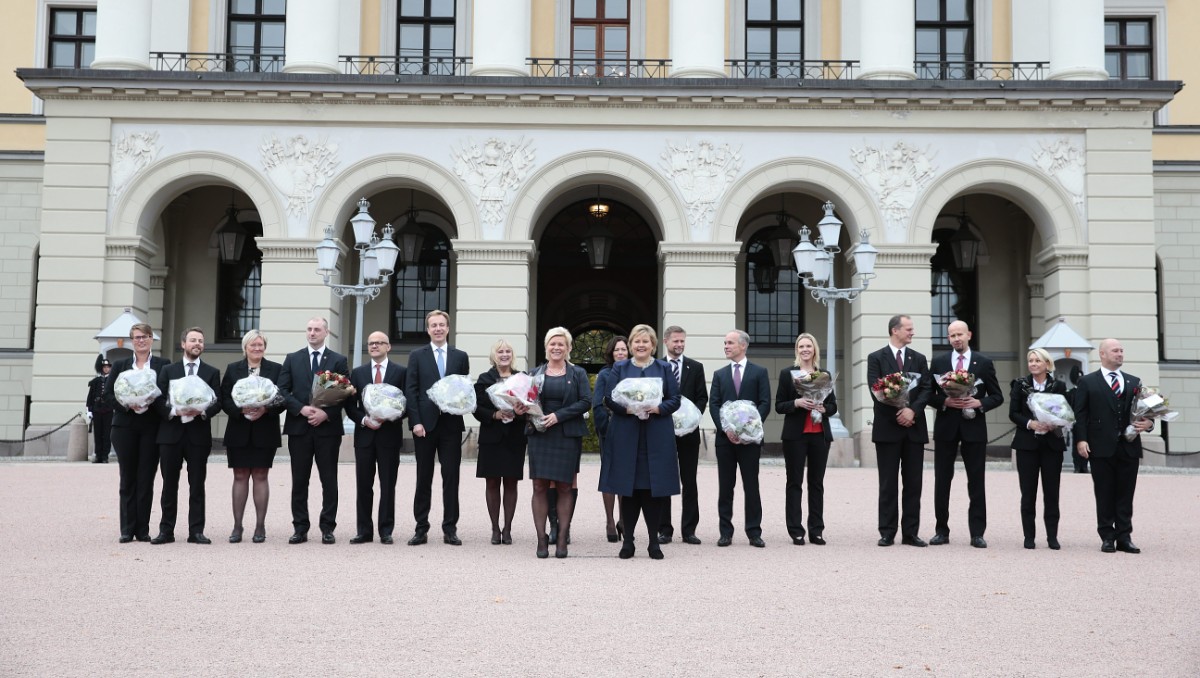
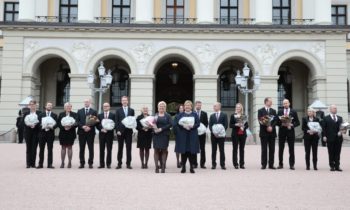 After leaving Sri Lanka, Tomas was asked to lead Norway´s global efforts for peace as head of the section for peace and reconciliation at the Ministry of Foreign Affairs. In that role he related to ministers and peace envoys from all continents. It is with deep regret that the NORWAY NEWS announces the death of Norwegian diplomat Tomas Stangeland, a Norwegian diplomat who was in Sri Lanka at the height of the Oslo-brokered peace process in Sri Lanka. Tomas was the affable Second Secretary of the Norwegian embassy in 2002 when a truce deal was agreed between the Sri Lankan government and the Liberation Tigers of Tamil Eelam. For local and foreign journalists, he was the main contact at the embassy. He died of cancer on February 12, 2014 in Oslo. He was 43.
After leaving Sri Lanka, Tomas was asked to lead Norway´s global efforts for peace as head of the section for peace and reconciliation at the Ministry of Foreign Affairs. In that role he related to ministers and peace envoys from all continents. It is with deep regret that the NORWAY NEWS announces the death of Norwegian diplomat Tomas Stangeland, a Norwegian diplomat who was in Sri Lanka at the height of the Oslo-brokered peace process in Sri Lanka. Tomas was the affable Second Secretary of the Norwegian embassy in 2002 when a truce deal was agreed between the Sri Lankan government and the Liberation Tigers of Tamil Eelam. For local and foreign journalists, he was the main contact at the embassy. He died of cancer on February 12, 2014 in Oslo. He was 43.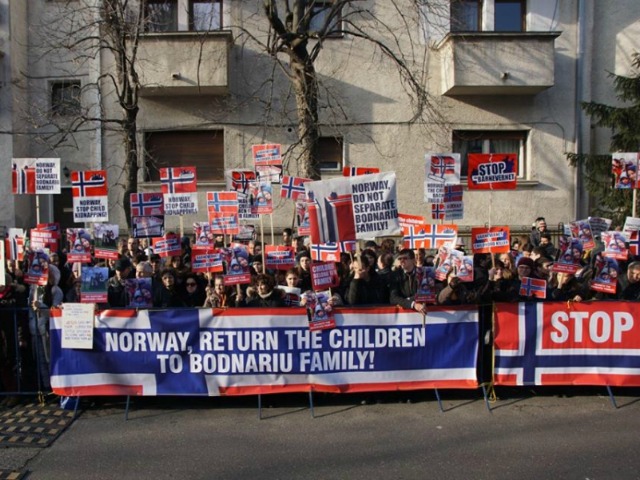
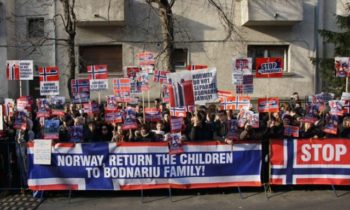 Thousands of Romanians have expressed anger at a decision by the Oslo authorities to take five children away from their Romanian-Norwegian parents over allegations of mistreatment. Over 62,000 people in Romania have signed a petition in recent days asking for a fast and fair solution in a sensitive case involving a Romanian-Norwegian family whose five children were taken into care by the Norwegian authorities because of alleged mistreatment.
Thousands of Romanians have expressed anger at a decision by the Oslo authorities to take five children away from their Romanian-Norwegian parents over allegations of mistreatment. Over 62,000 people in Romania have signed a petition in recent days asking for a fast and fair solution in a sensitive case involving a Romanian-Norwegian family whose five children were taken into care by the Norwegian authorities because of alleged mistreatment.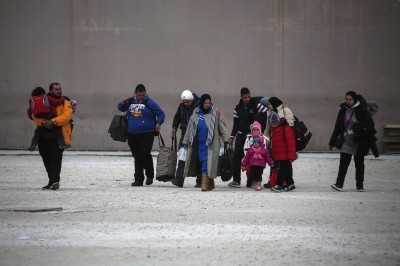
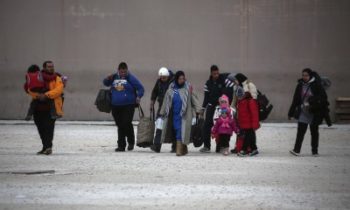 According to national broadcaster NOS, around 2,000 people joined the protest in a town of 27,000. Two police officers were among those hurt late on Wednesday when demonstrators began throwing stones, bottles and firecrackers to protest against a planned center for 1,500 migrants in the small Dutch village of Geldermalsen.
According to national broadcaster NOS, around 2,000 people joined the protest in a town of 27,000. Two police officers were among those hurt late on Wednesday when demonstrators began throwing stones, bottles and firecrackers to protest against a planned center for 1,500 migrants in the small Dutch village of Geldermalsen.
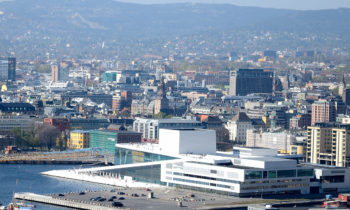 Oslo hangs in the balance. But, the xenophobic right is fairly and squarely defeated. Norway’s local elections on Monday produced “a hung city,” with the right coming first with 28 seats in the 59 member city council and the left 26. The kingmaker is the MDG party, with five seats and of green convictions.And the price for the prize of Olso may be the position of the Mayor. And the most motivated to accept the deal is the left since the right has held onto Oslo for 18 consecutive years.
Oslo hangs in the balance. But, the xenophobic right is fairly and squarely defeated. Norway’s local elections on Monday produced “a hung city,” with the right coming first with 28 seats in the 59 member city council and the left 26. The kingmaker is the MDG party, with five seats and of green convictions.And the price for the prize of Olso may be the position of the Mayor. And the most motivated to accept the deal is the left since the right has held onto Oslo for 18 consecutive years.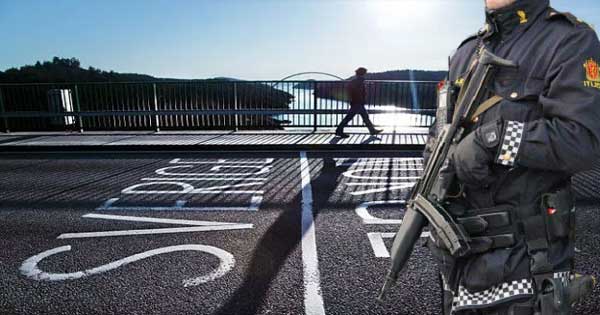
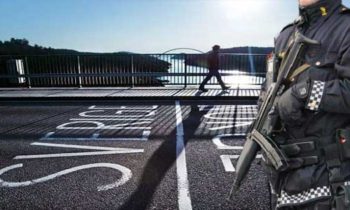 60 years after the Nordic Passport Union was established, Norway again introduces border control between the kingdom and neighboring countries. The Nordic Passport Union, established in 1955, allows citizens of the Nordic countries — Denmark (Faroe Islands included), Sweden, Norway, Finland, and Iceland — to travel and reside in another Nordic country without any travel documentation (e.g. a passport or national identity card) or a residence permit.
60 years after the Nordic Passport Union was established, Norway again introduces border control between the kingdom and neighboring countries. The Nordic Passport Union, established in 1955, allows citizens of the Nordic countries — Denmark (Faroe Islands included), Sweden, Norway, Finland, and Iceland — to travel and reside in another Nordic country without any travel documentation (e.g. a passport or national identity card) or a residence permit.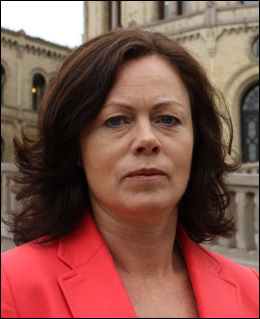
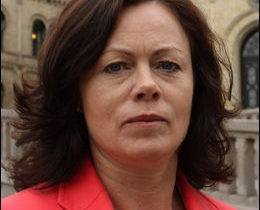 The Hague Conference has, for more than a century, concerned itself with the protection under civil law of children at risk in cross-frontier situations. During the last part of the 20th Century, the opening up of national borders, ease of travel and the breaking down of cultural barriers have, with all their advantages, increased those risks considerably. The cross-border trafficking and exploitation of children and their international displacement from war, civil disturbance or natural disaster have become major problems.There are also the children caught in the turmoil of broken relationships within transnational families, with disputes over custody and relocation, with the hazards of international parental abduction, the problems of maintaining contact between the child and both parents, and the uphill struggle of securing cross-frontier child support. There has also been an upsurge in the cross-border placement of children through intercountry adoption or shorter term arrangements, with the risks inherent in a situation where some countries find it difficult to ensure family care for all of their children while in others the demand for children from childless couples grows.
The Hague Conference has, for more than a century, concerned itself with the protection under civil law of children at risk in cross-frontier situations. During the last part of the 20th Century, the opening up of national borders, ease of travel and the breaking down of cultural barriers have, with all their advantages, increased those risks considerably. The cross-border trafficking and exploitation of children and their international displacement from war, civil disturbance or natural disaster have become major problems.There are also the children caught in the turmoil of broken relationships within transnational families, with disputes over custody and relocation, with the hazards of international parental abduction, the problems of maintaining contact between the child and both parents, and the uphill struggle of securing cross-frontier child support. There has also been an upsurge in the cross-border placement of children through intercountry adoption or shorter term arrangements, with the risks inherent in a situation where some countries find it difficult to ensure family care for all of their children while in others the demand for children from childless couples grows.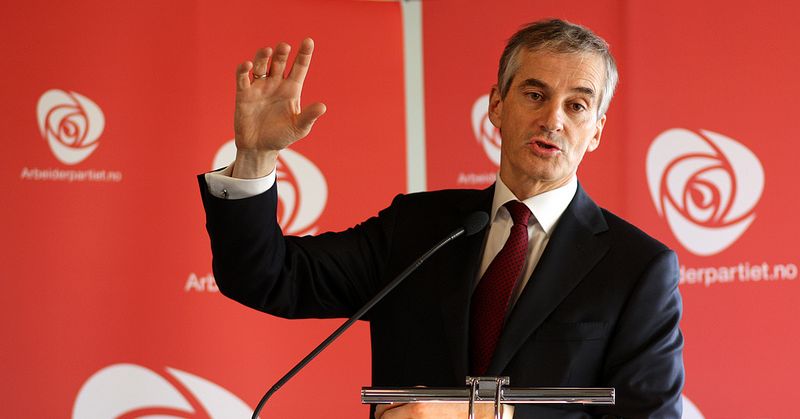
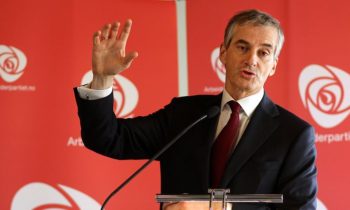 Jonas Gahr Store was Saturday elected leader of Norway‘s opposition Labour Party, succeeding Jens Stoltenberg who later this year takes over as head of NATO. Store, 53, was foreign minister from 2005 to 2012 under Stoltenberg, and then served as minister of health until last year‘s general elections when the Labour Party and its coalition partners were voted out of office. He was the sole candidate for the leadership post.Store said on the eve of the elections that there were no major political differences between him and Stoltenberg, and that he wanted to be “leader for a great team.”
Jonas Gahr Store was Saturday elected leader of Norway‘s opposition Labour Party, succeeding Jens Stoltenberg who later this year takes over as head of NATO. Store, 53, was foreign minister from 2005 to 2012 under Stoltenberg, and then served as minister of health until last year‘s general elections when the Labour Party and its coalition partners were voted out of office. He was the sole candidate for the leadership post.Store said on the eve of the elections that there were no major political differences between him and Stoltenberg, and that he wanted to be “leader for a great team.”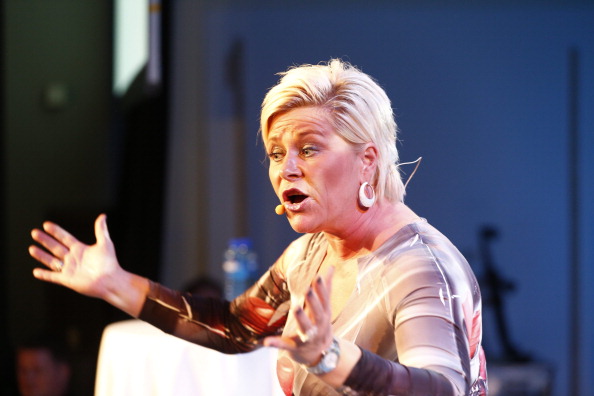
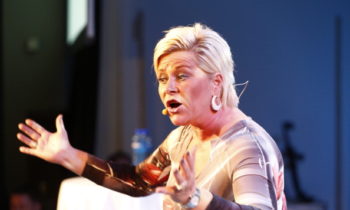
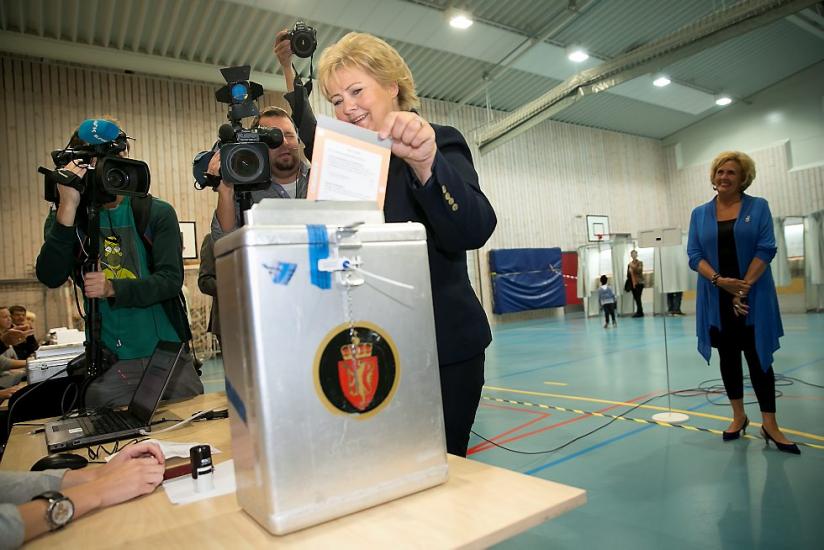
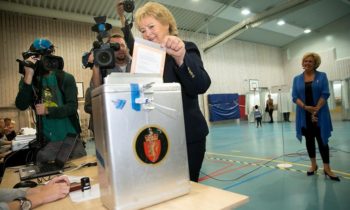 Erna Solberg, the new Prime Minister of Norway, has pledged to establish a NOK100 billion (€12.4 billion), five-year infrastructure fund, paid for by oil revenues. The fund would be used to boost the construction of roads, railways, broadband internet and other infrastructure, including renewable energy and natural gas. Investments would be made through a state-owned company that would be funded by the government, but would also be allowed to borrow abroad with the government backing the loan.Solberg and the Norwegian Conservative Party won the 9 September election in coalition with Norway’s Progress Party.
Erna Solberg, the new Prime Minister of Norway, has pledged to establish a NOK100 billion (€12.4 billion), five-year infrastructure fund, paid for by oil revenues. The fund would be used to boost the construction of roads, railways, broadband internet and other infrastructure, including renewable energy and natural gas. Investments would be made through a state-owned company that would be funded by the government, but would also be allowed to borrow abroad with the government backing the loan.Solberg and the Norwegian Conservative Party won the 9 September election in coalition with Norway’s Progress Party.
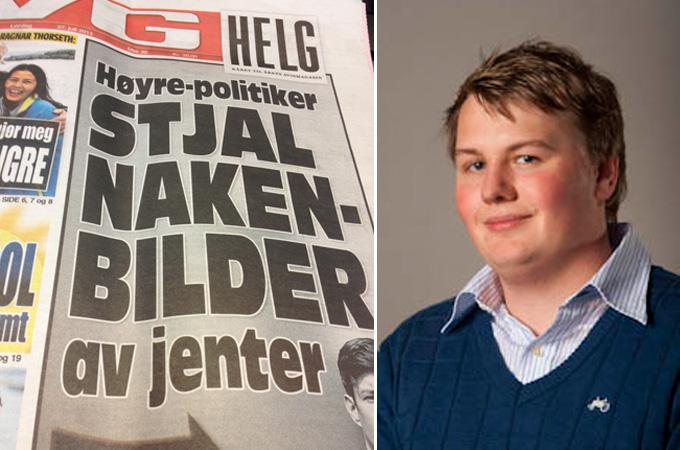
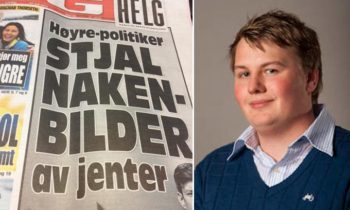 A young Norwegian politician who is the son of prominent parliamentarians has resigned from his post and admitted to hacking into several young womens’ data and distributing nude pictures of them online. Local police have launched an investigation into the matter.
A young Norwegian politician who is the son of prominent parliamentarians has resigned from his post and admitted to hacking into several young womens’ data and distributing nude pictures of them online. Local police have launched an investigation into the matter.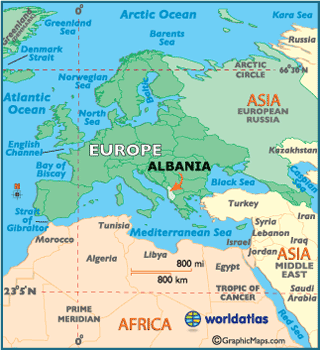
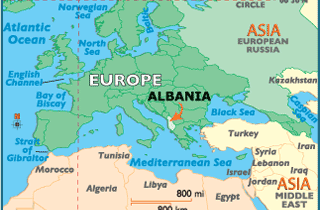 “Albania’s parliamentary elections on 23 June were considered free and democratic by international observers. This shows that the country has made further progress in living up to international standards,” said Minister of Foreign Affairs Espen Barth Eide. The opposition in Albania, a coalition led by Edi Rama (Socialist Party), won an overwhelming victory in the parliamentary elections. Prime Minister Sali Berisha has conceded defeat.
“Albania’s parliamentary elections on 23 June were considered free and democratic by international observers. This shows that the country has made further progress in living up to international standards,” said Minister of Foreign Affairs Espen Barth Eide. The opposition in Albania, a coalition led by Edi Rama (Socialist Party), won an overwhelming victory in the parliamentary elections. Prime Minister Sali Berisha has conceded defeat.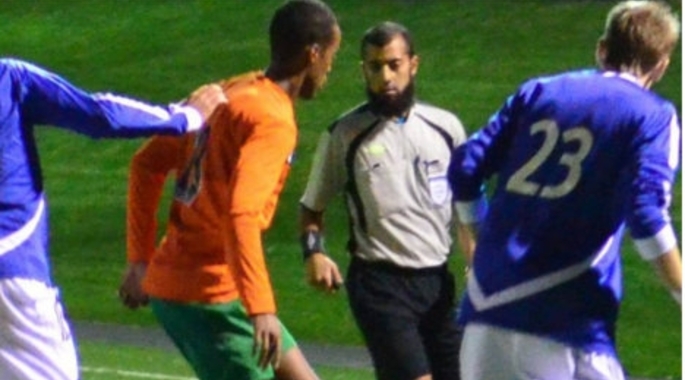
 Several mosques in Norway receive threats that are full of hatred against Muslims including the mosque Nehmat Ali Shah was an imam in. According to The Islamic Council, Norwegian mosques receive an increasing number of threats that are full of hatred against Muslims. Secretary General in the Islamic Council in Norway, Mehtab Afsar, tells Klassekampen that both the Imam’s mosque, Central Jamaat Ahle Sunnat, as well as other mosques have received several threats.”This is an unfortunate development,” Afsar said.
Several mosques in Norway receive threats that are full of hatred against Muslims including the mosque Nehmat Ali Shah was an imam in. According to The Islamic Council, Norwegian mosques receive an increasing number of threats that are full of hatred against Muslims. Secretary General in the Islamic Council in Norway, Mehtab Afsar, tells Klassekampen that both the Imam’s mosque, Central Jamaat Ahle Sunnat, as well as other mosques have received several threats.”This is an unfortunate development,” Afsar said.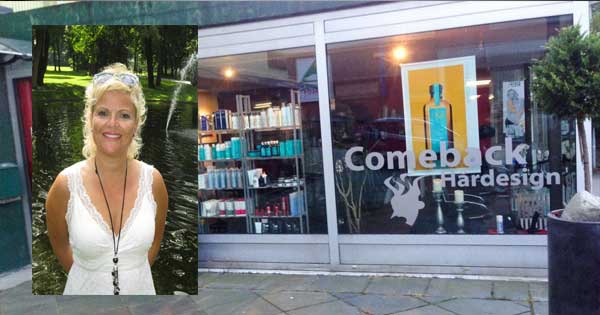
 Merete Hodne, who owns the hairdresser salon ‘Comeback Hårdesign’ in the town of Bryne in Norway, plain out refused two hijab-wearing women entrance to her hair salon, according to the local newspaper Jærbladet. After the incident she wrote about it on social media.”Just recently I refused to let two hijab-wearing women enter my salon. I do not want evil through the doors where I can decide. Lawful? Maybe not. But we still have freedom of speech, or?”, Hodne wrote as a comment on a post by the Norwegian Pegida leader Max Hermansen, on Facebook.
Merete Hodne, who owns the hairdresser salon ‘Comeback Hårdesign’ in the town of Bryne in Norway, plain out refused two hijab-wearing women entrance to her hair salon, according to the local newspaper Jærbladet. After the incident she wrote about it on social media.”Just recently I refused to let two hijab-wearing women enter my salon. I do not want evil through the doors where I can decide. Lawful? Maybe not. But we still have freedom of speech, or?”, Hodne wrote as a comment on a post by the Norwegian Pegida leader Max Hermansen, on Facebook.
 Saudi Arabia has criticized Norway’s human rights record, accusing the country of failing to protect its Muslim citizens and not doing enough to counter criticism of the prophet Mohammed. The gulf sate called for all criticism of religion and of prophet Mohammed to be made illegal in Norway. It also expressed concern at “increasing cases of domestic violence, rape crimes and inequality in riches” and noted a continuation of hate crimes against Muslims in the country.
Saudi Arabia has criticized Norway’s human rights record, accusing the country of failing to protect its Muslim citizens and not doing enough to counter criticism of the prophet Mohammed. The gulf sate called for all criticism of religion and of prophet Mohammed to be made illegal in Norway. It also expressed concern at “increasing cases of domestic violence, rape crimes and inequality in riches” and noted a continuation of hate crimes against Muslims in the country.